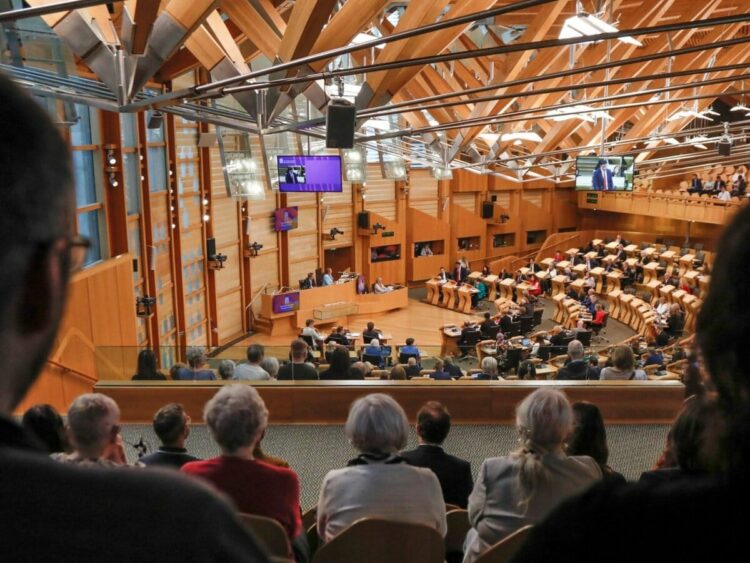[ad_1]
EDINBURGH — Scotland’s Parliament is weighing legislation that would introduce a new tourist tax. If passed this law would empower local authorities to impose a tax on overnight visitors, a measure intended to help manage the effects of the country’s booming tourism industry.

The Visitor Levy (Scotland) Bill, introduced on 24 May 2023 and currently in its final stage, would allow municipal councils across Scotland to institute a tax on accommodation charges like hotel rooms and short-term rentals if they wished.
According to the Bill, the revenues raised from the tax must be used for developing tourism facilities/services and achieving the objectives set out for each visitor levy scheme.
This suggests the tax is intended to direct funds towards enhancing the tourist experience and managing impacts, rather than just general municipal revenues.
Scotland, known for its historic cities, rugged highlands and famed hospitality, has seen a significant rise in visitors in recent years, with a record 3.9 million overseas tourists recorded in 2023.
While a boon for the economy, the influx has also strained infrastructure and public services in some popular destinations.
“In areas where there are greater pressures on the local environment and activities that enhance the tourist experience, communities are facing pressure on their infrastructure as a result of visitor numbers,” the policy memorandum accompanying the bill stated.
If passed, the optional tax would allow municipalities to charge visitors a percentage of their accommodation costs. The rate would be set locally but within a national framework to ensure consistency.
For the Scottish government, led by the pro-independence Scottish National Party, the proposed visitor levy represents a step toward greater fiscal empowerment of local communities. Municipalities would be required to consult with businesses and residents before implementation.
“Giving local authorities this power will strengthen local democracy by giving them a discretionary new fiscal power that they can choose to use in their areas,” the policy memorandum stated.
Tourism taxes on overnight stays are common across Europe, found in major destinations like Amsterdam, Berlin and Rome as well as smaller jurisdictions.
Revenues may go toward general municipal funds or be dedicated to tourism-related investments like infrastructure, marketing or environmental protections.
In Scotland, the government envisions using visitor tax proceeds for “developing, supporting and sustaining facilities and services which are substantially for, or used by, those visiting a local authority’s area for leisure purposes.”
The proposal has faced some opposition from sections of the tourism industry, which has argued it could make Scotland a less competitive destination. But analyses have suggested accommodation charges represent a relatively small portion of overall visitor spending.
If the legislation passes, Scotland would join the handful of nations in the British Isles with visitor taxes, including Britain itself, which imposes a fee on guests in some localities.
Estimates indicate a 3% tax could raise over £100 million annually across Scotland based on accommodation revenues. Edinburgh alone could raise over £25 million per year.
The first Scottish municipalities could have taxes in place as early as next year.
For a country treasuring its reputation for warm hospitality, the visitor levy raises complex questions about balancing an economic engine with sustainability and livability for local communities.
Its passage could make Scotland a test case for managing the burdens of overwhelming popularity.
Read also: Scotland’s Tourism Bounces Back, Surpassing Pre-Pandemic Levels!
Reference: Visitor Levy (Scotland) Bill, The Scottish Parliament
How do you feel about this article?
[ad_2]
Source link



No Comments
Leave Comment